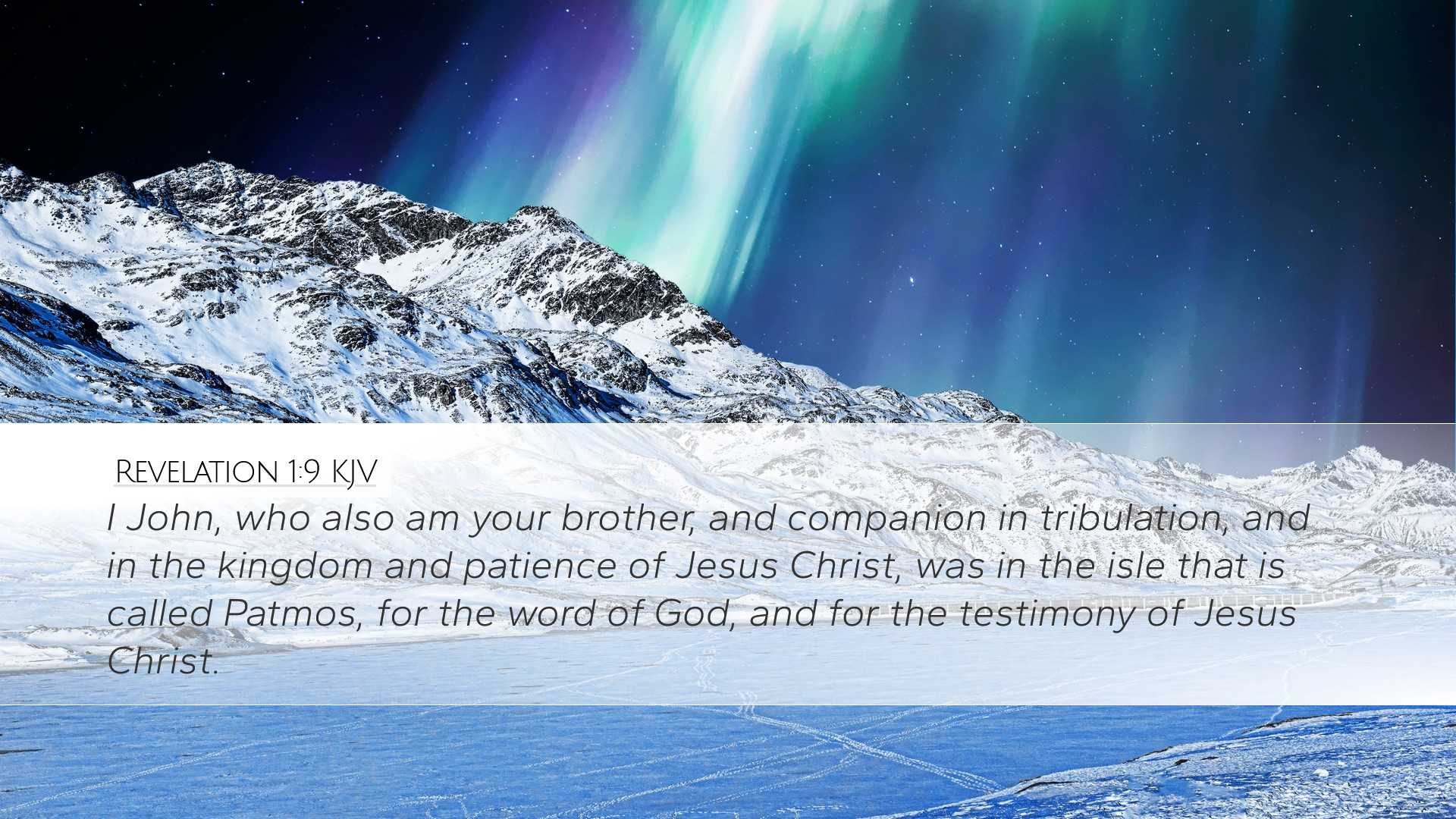Commentary on Revelation 1:9
Verse Text: "I, John, who also am your brother, and companion in tribulation, and in the kingdom and patience of Jesus Christ, was in the isle that is called Patmos, for the word of God, and for the testimony of Jesus Christ."
Introduction
The opening of the Book of Revelation introduces us to John the Apostle, who identifies himself not only as an author but also as a participant in the shared struggles and aspirations of the early Christian community. His context and situation are crucial for understanding the depth of his message and the themes that pervade this extraordinary revelation.
Author's Identity and His Circumstances
John makes it clear that he is writing from a context of tribulation. This is significant as it emphasizes the suffering that believers endure for their faith. John refers to himself as a "brother" and "companion," which fosters a sense of unity among the believers, suggesting that he is not distant from their struggles but intimately acquainted with them.
John was exiled to the isle of Patmos, a desolate rock in the Aegean Sea, due to his testimony concerning Jesus Christ. Stein's commentary emphasizes that this exile was a direct consequence of his faithfulness to the Gospel, reflecting the reality of persecution faced by early Christians.
Theological Insights
- Shared Tribulation: John shares in the tribulation experienced by believers, indicating that suffering is a common theme in the Christian walk. As Matthew Henry notes, "tribulation is one of the marks of a true believer." This underscores the idea that trials may serve to strengthen faith.
- The Kingdom: The concept of being a part of the "kingdom" emphasizes the present reality of God's reign among His people, a theme Adam Clarke elaborates on, linking it to a spiritual kingdom that is manifested through believers' lives.
- Patience of Jesus Christ: The "patience" refers to the endurance that believers must exhibit. Herein lies a call for steadfastness in faith amidst tribulation. Albert Barnes articulates that the endurance reflected in Christ's suffering serves as a prototype for believers.
Historical Context
John's writing, during a time when Christians faced severe persecution, provides a backdrop for understanding various elements in Revelation. The Roman Empire’s oppressive rule fostered an environment where the followers of Christ often paid a hefty price for their commitment.
Examination of Key Themes
This verse opens the door to key themes prevalent in the entire Book of Revelation, such as suffering, endurance, and the hope of Christ's return. Of particular note is the juxtaposition of suffering in this life with the promise of future glory in God’s kingdom, which Calvin emphasizes; the faithful are often called to bear their cross.
Moreover, this context invites readers to reflect on their current experiences within the broader framework of God's promises and challenges within their own lives.
Application for Today’s Believers
- Encouragement in Tribulation: For contemporary believers, John's words remind us that we are not alone in our struggles. Regular reflection on the shared experiences of believers, as emphasized by Henry, can foster unity and strength among congregations.
- Expectation of the Kingdom: Students and theologians may reflect on the implications of the kingdom's present and future aspects, encouraging them to live in a way that signifies God's reign in their lives today.
- Endurance in Faith: Clarke’s insights into patience encourage individuals to develop resilience in their faith journey, reminding us that God's presence empowers us through trials.
Conclusion
Revelation 1:9 serves not only as an introduction to John’s prophetic vision but also as a profound reminder of the believer's journey through suffering, community, and patience in the context of an enduring faith. This verse encapsulates the essence of Christian perseverance and the hope of a glorious future in the Kingdom of God.


